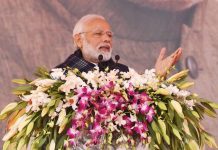
Photo: Balaji Maheshwar
How did you get into filmmaking?
If someone had told me 15 years ago that I would be making films, I would have laughed. It was writing that I had always been interested in, from school onwards. So journalism seemed like a natural choice. I have worked in both print and electronic media. I think, making films was then a natural progression. I am more of a communicator than a filmmaker. This is another medium.
How did your National Award-winning film Kutty come about?
After leaving my job with a TV network, I had started dabbling in documentaries that were supported by some friends and by the Ford Foundation. One of the last interviews I had done for the network was with Santosh Sivan, who had then won a National Award. He asked me to try making films. I suppose a seed was sown that day. That’s when Sivasankari, the Tamil novelist and activist whom I was close to, gave me her novel Kutty, which many others wanted to make into a film.
What draws you to your topics — child labour and devdasis?
My training as a journalist made me pick on something that has a basis in reality. Also, I ceased to see cinema as just entertainment. It’s more than that. It can entertain but also inform. Even in mainstream cinema, the issues that these films talk about come from society. It’s the treatment that dilutes the issues for entertainment.
Why use fiction then, instead of the documentary style?
Coming from Tamil Nadu, I cannot tell you how much of an impact cinema has had on our society, on our politics. Even in the rest of the country, cinema is an undeniable influence on our culture, even if it cannot be quantified. Someone who had seen Kutty called me once to say that he had taken his maid servant, who was a little girl, back to her parents’ house and was sponsoring her education. Even one call like that makes it worthwhile.
Is Yeh Hai Bakrapur, your latest film, a departure from the style of Kutty?
In a sense, yes. Though the topic is as serious as those of my previous movies, I’ve adopted a satirical tone, given it a comic treatment. Also, this is my first Hindi film. The change in language, however, did not affect me much, as I am familiar with Hindi.












